Throwback Thursday: 7 Female MTB Pioneers Who Made History
Spring is here, the bikes are out, and I find myself feeling stoked about the sheer number of women I see on the trails today.
We still have a long way to go in terms of funding, structure and exposure, but recent years have seen the number of female riders increase exponentially. While women are making history in competition, there are so many impactful women working in the fabric of the industry: picking up shovels, designing equipment, and fostering community. But cycling wasn’t always this diverse.
There are certain points in history where sports experience a quantum leap, and for women’s mountain biking that was the early 90’s. Even back in the 70’s and 80’s, there were a handful of women that dared to go against the grain and pioneered the sport we know and love today. Others have since followed in their footsteps and made further advances for women’s cycling. I delved into the history books to take a look back at some of the pioneering women in the sport and holy moly, I am inspired. While this is by no means an exhaustive list, here are some of the women who laid the groundwork for women's mountain biking as we know it today.
How many people can say they have a bike brand named after them? Juli Furtado (arguably single-handedly) brought women's mountain bike racing to an international standard. Not to be pigeonholed by just one sport, Juli was an avid skier before becoming the US national road champion in 1989. A year later, she became the cross-country world champion at the first ever mountain bike world championships in Durango, Colorado. True to form, Juli went on to win gold at Mont-Sainte-Anne 1992 in yet another discipline - downhill. Perhaps the apex of her racing career was when she competed as an Olympic athlete at the 1996 games - the inaugural Olympic event for mountain biking. She held a Guinness World Record for most career 1st-place finishes in MTB ever (male or female).
There is no question that Juli’s bike handling skills were exceptional. At a time when most cross-country competitors (of both sexes) merely wobbled down what would be green trails, Juli charged through with refreshing confidence and aggression. She maintained her stellar fitness by training with the pro men on Colorado's iconic mountain passes, and was known to be able to ride away from her competitions. Juli brought women's racing in North America to a world class level, right at the moment the sport became an international spectacle.
After retiring from competition and being diagnosed with lupus, Juli Furtado applied her creative talent to a new pursuit. She began working with Santa Cruz Bikes, having a critical role in the development and launch of the brand we know today as Juliana. After being inducted in both the Mountain Bike Hall of Fame and the US Bicycling Hall of Fame, she became a mother in 2008. The way she has opened up about her depression and struggles throughout childhood is a beacon of light for others in the world dealing with similar circumstances. Her impact on the industry has been wide reaching, diverse, and undeniable.
Jacquie Phelan's reputation as a San Franciscan legend precedes her, with lungs and legs that could not be bested by any other woman (or 90% of men) in the ‘80s and probably now. Her physical ability propelled her to the top of the road racing scene, and her creative attire combined with a college degree set her apart from her racing compatriots. Her bike “Otto'' was the first aluminum lightweight mountain bike and raced unbeaten for 6 years, breaking away from the idea that durable frames had to be made of steel.
Jacquie's most important contribution to cycling, however, was her outspoken encouragement to female riders in the sport. She was a woman before her time, laying down the groundwork for the success of women riders after her. She loudly exposed the sexism and misogyny she witnessed in mountain bike culture while encouraging women to ignore said gender disparities. She was educated, sharp as a whip and most importantly unfiltered. Many believe Jacquie is to thank for mountain bike racing becoming the first cycling competition in which women were included at all levels.
Phelan is perhaps best known for having developed WOMBATS (Women's Mountain Bike & Tea Society), whose mission is to sustain a women's off-road cycling network to help connect riding partners. In the 1990’s, the club had four to five hundred members nationwide. The first mountain bike camps in history came from Jacquie, the first of which was an off-road skills camp known as "Fat Tire Finishing School” in 1984. She has been writing about cycling for 20 years. As the Marin Museum of Bicycling puts it, "The only thing that eludes her is a job.”
Leigh began BMX racing as a child in the hills of Southern California, winning multiple national championships and a world title. When she eventually stepped away from the sport, she was promptly handed a mountain bike by the team at Haro bikes who had thought she could probably do some damage in the (then) new sport of mountain bike racing. In her first mountain bike race in 1992, she beat out the sport’s most popular rider at the time - Missy Giove - in the dual slalom. Leigh’s MTB career took off from there and she was signed immediately to Team IronHorse. In 1995 Leigh won the triple crown, winning the national slalom championship, national downhill championship and the world championship–an accomplishment that has never been repeated to this day. Leigh was also the only female to ever win the Richard Long sportsmanship award given by NORBA.
In 2010, at 38 years of age, a mother of a 5-year-old, designer boutique business owner, and 9 years after retiring from professional racing, Leigh heard that the MTB World Championships would be held in Mont-Sainte-Anne, Canada - her favorite race course. She decided to try to make the U.S. National Downhill team at 39, and of the 5 events she raced in 2010, she made the podium in each. In 2014, Leigh launched a coaching and clinic business called iChooseBikes that focused on teaching MTB skills to riders of all ages, levels, and genders. She now works for SRAM as their Southern California Field Guide, representing the brand through local bicycle dealers, focused on the aftermarket segment of the bike industry as well as empowering cyclists through advocacy and event support; including youth racing.
Back in the mid '70s, a motley crew of cyclists took their fully rigid town bikes off-road and started bombing downhill in a counterculture event that became known locally as the ‘Repack Races'. Right there with them, riding in the dusty ruts of a ruthless fireroad on Mt Tam, was Wendy Cragg, whose photographs of this emerging counterculture got her inducted into the MTB Hall of Fame in 1989. After participating in the first few races (she still holds the record for the fastest woman), she took on a new role as the lone woman photographer participating in seminal early riding adventures.
Cragg’s lens was originally focused on the wildflowers and mushrooms that lined the roads her cohorts threw themselves down, but she eventually turned her lens to the blossoming subculture she found herself a part of. Her interest in all things quiet and candid led to her capturing some of the most iconic images from the early years of the sport. Her photos display not just the dust trails and foot-drags of downhill action, they are 35mm vignettes that capture the age of innocence in the early age of mountain biking. Cragg now works as a textile artist while also curating the Rolling Dinosaur Archive, all in between bike rides on her 1986 custom Breezer she still rides to this day. Some would say that without her contribution, the sport of mountain biking would have languished in the hills of Marin and pockets of Colorado.
Missy "The Missile" Giove is known for her high-intensity, daredevil riding style that transcended her attitude to life: go big or go home. In the 90s, Missy rode with an intensity on the course that was unparalleled by any other rider, male or female. This, combined with eccentric style (she rode with the dried body of her piranha around her neck and the ashes of her dog tucked into her bra), was a recipe for Missy to become a rockstar in the golden ages of mountain biking. She emerged as one of the highest paid racers in both XC and DH, landing a million dollar contract with one of her main sponsors. She has gained widespread acclaim for bringing a tremendous amount of attention to the sport of mountain biking and pioneering the concept of the sport as a feasible career. Throughout her career she won 14 NORBA DH titles, 11 World Cups and 2 World Cup overalls.
After a horrific crash and resultant brain hemorrhage that altered the course of her life, Missy was forced to look at other ways to make money. No stranger to pressure-cooker stress levels, Missy took on the high-risk role of transporting thousands of pounds of marijuana across the country from California to New York. In 2009, a massive DEA operation brought Giove head to head with law enforcement and she faced up to 40 years in jail. Due to her above-standard cooperation during the investigation and process, Missy was sentenced to six months under house arrest, five years of probation, and 500 hours of community service. In 2016, Giove was inducted into the Mountain Bike Hall of Fame, and has since returned to racing.
Known as “the gnarliest woman on the North Shore,” Carys Evans was one of 5 original 'Rocky Mountain Fro Riders', a North Shore freeride crew in the 90’s pushing boundaries in the evolution of the sport. She rode with “Careless Carys” emblazoned across the back of her jersey, and particularly excelled at steep, techy descents that most would consider pretty nasty. In the classic movie 'The Moment', Todd “Digger” Fiander spoke of Carys with incredulity, saying “This girl could kick ass, man”. If you want people talking about you, this is what you'd hope they say.
But Carys burned out, realizing that being a sponsored rider - and the implied expectations - was not the path for her. She is best known for starring in the freeride hit movie "Kranked - Live to Freeride", and is considered to be one of, if not the very first, female professional freeriders. After a short but sweet professional career, she opted to leave the bike industry behind. She enrolled in a program supporting women in trades and graduated four years later with a Red Seal certification as an electrician. Well known for being an outspoken feminist, Carys returned to live in her hometown in Nanaimo and lives a life as a ceramics artist, electrician and trail advocate.
Known in the biking world and beyond as ACC, Anne-Caroline Chausson was born in France and began racing at just 6 years old. ACC is one of the most decorated riders of all time and one of the best all-around cycling athletes to have ever hit the track. After a dominant BMX racing career, she proceeded to take the DH world by storm as a Junior DH World Champion, promptly followed by an 8 year winning streak as Elite World Champion. From 1998-2000 she won the overall World Cup DH and World Championship titles.
In 2000, ACC branched out further within the mountain bike realm, and began winning dual-slalom championships as well as four-cross. She then continued her (almost unbelievably) successful competitive career by winning gold at the inaugural BMX race at the 2008 Olympic Games in Beijing. In 2012, she gave enduro racing a go, and was one of the most successful enduro racers at the time. Her achievements in her wildly impressive career on the bike laid out a model for success that has not been bettered by any man or woman in the sport. Truly the GOAT, ACC continues to inspire others with her courageous fight against cancer, retaining a positive outlook in life and enjoying the freedom of riding her bike.
We still have a long way to go in terms of funding, structure and exposure, but recent years have seen the number of female riders increase exponentially. While women are making history in competition, there are so many impactful women working in the fabric of the industry: picking up shovels, designing equipment, and fostering community. But cycling wasn’t always this diverse.
There are certain points in history where sports experience a quantum leap, and for women’s mountain biking that was the early 90’s. Even back in the 70’s and 80’s, there were a handful of women that dared to go against the grain and pioneered the sport we know and love today. Others have since followed in their footsteps and made further advances for women’s cycling. I delved into the history books to take a look back at some of the pioneering women in the sport and holy moly, I am inspired. While this is by no means an exhaustive list, here are some of the women who laid the groundwork for women's mountain biking as we know it today.
Juli Furtado
How many people can say they have a bike brand named after them? Juli Furtado (arguably single-handedly) brought women's mountain bike racing to an international standard. Not to be pigeonholed by just one sport, Juli was an avid skier before becoming the US national road champion in 1989. A year later, she became the cross-country world champion at the first ever mountain bike world championships in Durango, Colorado. True to form, Juli went on to win gold at Mont-Sainte-Anne 1992 in yet another discipline - downhill. Perhaps the apex of her racing career was when she competed as an Olympic athlete at the 1996 games - the inaugural Olympic event for mountain biking. She held a Guinness World Record for most career 1st-place finishes in MTB ever (male or female).
There is no question that Juli’s bike handling skills were exceptional. At a time when most cross-country competitors (of both sexes) merely wobbled down what would be green trails, Juli charged through with refreshing confidence and aggression. She maintained her stellar fitness by training with the pro men on Colorado's iconic mountain passes, and was known to be able to ride away from her competitions. Juli brought women's racing in North America to a world class level, right at the moment the sport became an international spectacle.
After retiring from competition and being diagnosed with lupus, Juli Furtado applied her creative talent to a new pursuit. She began working with Santa Cruz Bikes, having a critical role in the development and launch of the brand we know today as Juliana. After being inducted in both the Mountain Bike Hall of Fame and the US Bicycling Hall of Fame, she became a mother in 2008. The way she has opened up about her depression and struggles throughout childhood is a beacon of light for others in the world dealing with similar circumstances. Her impact on the industry has been wide reaching, diverse, and undeniable.
Jacquie Phelan
Jacquie Phelan's reputation as a San Franciscan legend precedes her, with lungs and legs that could not be bested by any other woman (or 90% of men) in the ‘80s and probably now. Her physical ability propelled her to the top of the road racing scene, and her creative attire combined with a college degree set her apart from her racing compatriots. Her bike “Otto'' was the first aluminum lightweight mountain bike and raced unbeaten for 6 years, breaking away from the idea that durable frames had to be made of steel.
Jacquie's most important contribution to cycling, however, was her outspoken encouragement to female riders in the sport. She was a woman before her time, laying down the groundwork for the success of women riders after her. She loudly exposed the sexism and misogyny she witnessed in mountain bike culture while encouraging women to ignore said gender disparities. She was educated, sharp as a whip and most importantly unfiltered. Many believe Jacquie is to thank for mountain bike racing becoming the first cycling competition in which women were included at all levels.
Phelan is perhaps best known for having developed WOMBATS (Women's Mountain Bike & Tea Society), whose mission is to sustain a women's off-road cycling network to help connect riding partners. In the 1990’s, the club had four to five hundred members nationwide. The first mountain bike camps in history came from Jacquie, the first of which was an off-road skills camp known as "Fat Tire Finishing School” in 1984. She has been writing about cycling for 20 years. As the Marin Museum of Bicycling puts it, "The only thing that eludes her is a job.”
Leigh Donovan
Leigh began BMX racing as a child in the hills of Southern California, winning multiple national championships and a world title. When she eventually stepped away from the sport, she was promptly handed a mountain bike by the team at Haro bikes who had thought she could probably do some damage in the (then) new sport of mountain bike racing. In her first mountain bike race in 1992, she beat out the sport’s most popular rider at the time - Missy Giove - in the dual slalom. Leigh’s MTB career took off from there and she was signed immediately to Team IronHorse. In 1995 Leigh won the triple crown, winning the national slalom championship, national downhill championship and the world championship–an accomplishment that has never been repeated to this day. Leigh was also the only female to ever win the Richard Long sportsmanship award given by NORBA.
In 2010, at 38 years of age, a mother of a 5-year-old, designer boutique business owner, and 9 years after retiring from professional racing, Leigh heard that the MTB World Championships would be held in Mont-Sainte-Anne, Canada - her favorite race course. She decided to try to make the U.S. National Downhill team at 39, and of the 5 events she raced in 2010, she made the podium in each. In 2014, Leigh launched a coaching and clinic business called iChooseBikes that focused on teaching MTB skills to riders of all ages, levels, and genders. She now works for SRAM as their Southern California Field Guide, representing the brand through local bicycle dealers, focused on the aftermarket segment of the bike industry as well as empowering cyclists through advocacy and event support; including youth racing.
Wende Cragg
Back in the mid '70s, a motley crew of cyclists took their fully rigid town bikes off-road and started bombing downhill in a counterculture event that became known locally as the ‘Repack Races'. Right there with them, riding in the dusty ruts of a ruthless fireroad on Mt Tam, was Wendy Cragg, whose photographs of this emerging counterculture got her inducted into the MTB Hall of Fame in 1989. After participating in the first few races (she still holds the record for the fastest woman), she took on a new role as the lone woman photographer participating in seminal early riding adventures.
Cragg’s lens was originally focused on the wildflowers and mushrooms that lined the roads her cohorts threw themselves down, but she eventually turned her lens to the blossoming subculture she found herself a part of. Her interest in all things quiet and candid led to her capturing some of the most iconic images from the early years of the sport. Her photos display not just the dust trails and foot-drags of downhill action, they are 35mm vignettes that capture the age of innocence in the early age of mountain biking. Cragg now works as a textile artist while also curating the Rolling Dinosaur Archive, all in between bike rides on her 1986 custom Breezer she still rides to this day. Some would say that without her contribution, the sport of mountain biking would have languished in the hills of Marin and pockets of Colorado.
Missy Giove
Missy "The Missile" Giove is known for her high-intensity, daredevil riding style that transcended her attitude to life: go big or go home. In the 90s, Missy rode with an intensity on the course that was unparalleled by any other rider, male or female. This, combined with eccentric style (she rode with the dried body of her piranha around her neck and the ashes of her dog tucked into her bra), was a recipe for Missy to become a rockstar in the golden ages of mountain biking. She emerged as one of the highest paid racers in both XC and DH, landing a million dollar contract with one of her main sponsors. She has gained widespread acclaim for bringing a tremendous amount of attention to the sport of mountain biking and pioneering the concept of the sport as a feasible career. Throughout her career she won 14 NORBA DH titles, 11 World Cups and 2 World Cup overalls.
After a horrific crash and resultant brain hemorrhage that altered the course of her life, Missy was forced to look at other ways to make money. No stranger to pressure-cooker stress levels, Missy took on the high-risk role of transporting thousands of pounds of marijuana across the country from California to New York. In 2009, a massive DEA operation brought Giove head to head with law enforcement and she faced up to 40 years in jail. Due to her above-standard cooperation during the investigation and process, Missy was sentenced to six months under house arrest, five years of probation, and 500 hours of community service. In 2016, Giove was inducted into the Mountain Bike Hall of Fame, and has since returned to racing.
Carys Evans
Known as “the gnarliest woman on the North Shore,” Carys Evans was one of 5 original 'Rocky Mountain Fro Riders', a North Shore freeride crew in the 90’s pushing boundaries in the evolution of the sport. She rode with “Careless Carys” emblazoned across the back of her jersey, and particularly excelled at steep, techy descents that most would consider pretty nasty. In the classic movie 'The Moment', Todd “Digger” Fiander spoke of Carys with incredulity, saying “This girl could kick ass, man”. If you want people talking about you, this is what you'd hope they say.
But Carys burned out, realizing that being a sponsored rider - and the implied expectations - was not the path for her. She is best known for starring in the freeride hit movie "Kranked - Live to Freeride", and is considered to be one of, if not the very first, female professional freeriders. After a short but sweet professional career, she opted to leave the bike industry behind. She enrolled in a program supporting women in trades and graduated four years later with a Red Seal certification as an electrician. Well known for being an outspoken feminist, Carys returned to live in her hometown in Nanaimo and lives a life as a ceramics artist, electrician and trail advocate.
Anne-Caroline Chausson
Known in the biking world and beyond as ACC, Anne-Caroline Chausson was born in France and began racing at just 6 years old. ACC is one of the most decorated riders of all time and one of the best all-around cycling athletes to have ever hit the track. After a dominant BMX racing career, she proceeded to take the DH world by storm as a Junior DH World Champion, promptly followed by an 8 year winning streak as Elite World Champion. From 1998-2000 she won the overall World Cup DH and World Championship titles.
In 2000, ACC branched out further within the mountain bike realm, and began winning dual-slalom championships as well as four-cross. She then continued her (almost unbelievably) successful competitive career by winning gold at the inaugural BMX race at the 2008 Olympic Games in Beijing. In 2012, she gave enduro racing a go, and was one of the most successful enduro racers at the time. Her achievements in her wildly impressive career on the bike laid out a model for success that has not been bettered by any man or woman in the sport. Truly the GOAT, ACC continues to inspire others with her courageous fight against cancer, retaining a positive outlook in life and enjoying the freedom of riding her bike.
Author Info:
Must Read This Week

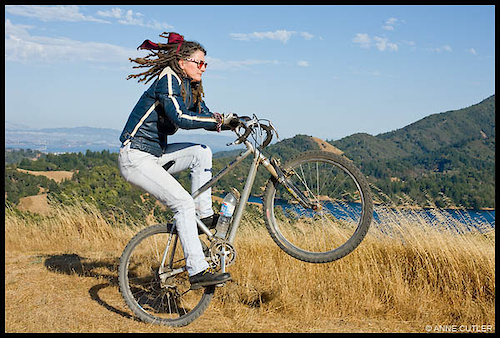
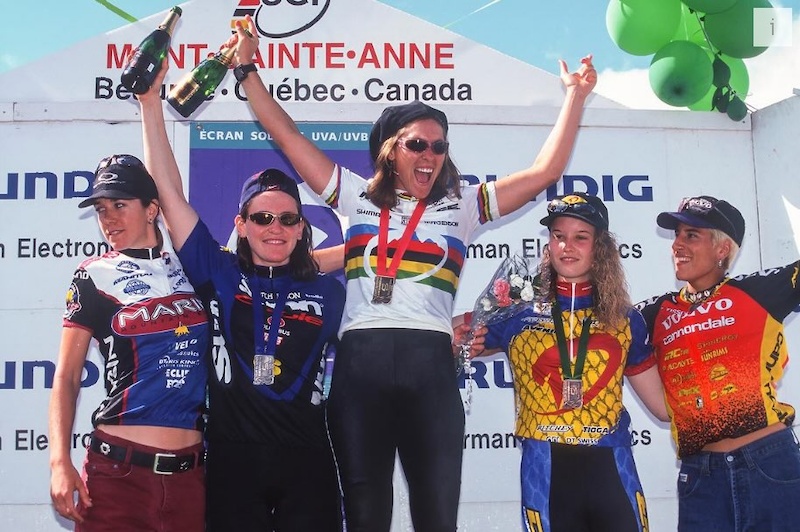
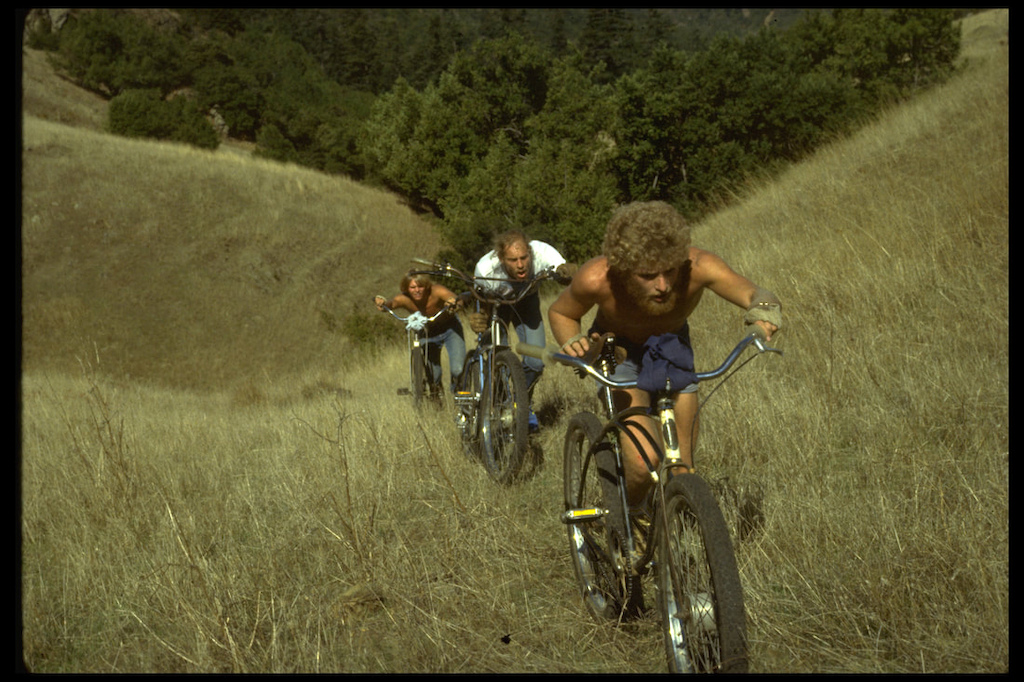
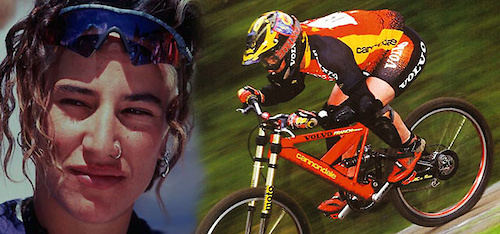
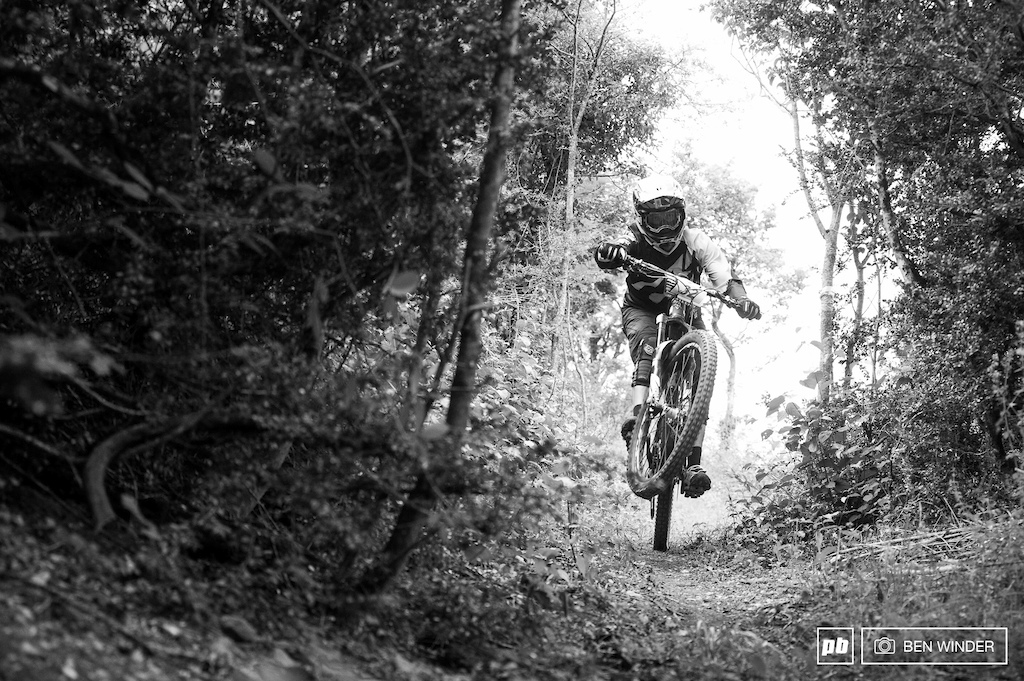
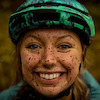
I'm sorry but thats just plain wrong. not sure where you were racing in 1987 & all through the 90s, but racing fully rigid bikes my arms were frequently on fire even on the days I won. also xc races back then were a lot longer. Tomacs winning time in 91 was 2hr 38mins.
Hope to see more posts like these and accompanying videos if you can find em.
They were good racers for sure, but they don’t really have the impact on the sport that ACC had by winning so many races, or Furtado had with dual disciplines, or being the first photographer of the sport etc…
Your mileage may vary.
I remember Pezzo, but I had to look up Bonazzi, thanks for teaching me something today.
P.S. Furtado’s famous quote is one of my favorites: “The slower you go, the more likely you are to crash.”
@pinkbike they are definitely missing Gunn-Rita.
en.m.wikipedia.org/wiki/Gunn-Rita_Dahle_Flesj%C3%A5
More Ws than you can count, and she was a big part of (and still is) fighting for equal pay for Women mountain bikers. Thats pioneering right there. But none the less, the girls on the list deserves to be there without a doubt. But there were other countries involved and pioneering.
www.youtube.com/watch?v=_aNngAj6VL8
1. Leigh
2. ACC
3. Nolvenn LeCaer
4. Marla
5. Missy
Christina's articles and vids were great.
But I think what we're both trying to say is, it's the patriarchy's fault.